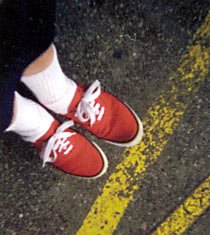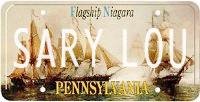How Pixar Adds a New School of Thought to Disney
Sign In to E-Mail This
Printer-Friendly
Reprints
Save Article
By WILLIAM C. TAYLOR and POLLY LaBARRE
Published: January 29, 2006
Correction Appended
SURE, Disney's deal last week to acquire Pixar is about big money — how Steven P. Jobs turned a fledgling outfit that he had bought for $10 million into a juggernaut valued at $7.4 billion. And, yes, it is about a big strategic shift at the Walt Disney Company, as Robert A. Iger, the chief executive, exorcises the ghost of his predecessor, Michael D. Eisner. But it is also about the potential for big changes in how the entertainment business operates — specifically, in how major studios organize talented people to do their best work.
Since 1995, with the release of "Toy Story," Pixar's films have reinvented the art of animation, won 19 Academy Awards and grossed more than $3 billion at the box office. But the secret to the success of Pixar Animation Studios is its utterly distinctive approach to the workplace. The company doesn't just make films that perform better than standard fare. It also makes its films differently — and, in the process, defies many familiar, and dysfunctional, industry conventions. Pixar has become the envy of Hollywood because it never went Hollywood.
More than a few business pundits have drawn parallels between the flat, decentralized "corporation of the future" and the ad-hoc collection of actors, producers and technicians that come together around a film and disband once it is finished. In the Hollywood model, the energy and investment revolves around the big idea — the script — and the fine print of the deal. Highly talented people agree to terms, do their jobs, and move on to the next project. The model allows for maximum flexibility, to be sure, but it inspires minimum loyalty and endless jockeying for advantage.
Turn that model on its head and you get the Pixar version: a tightknit company of long-term collaborators who stick together, learn from one another and strive to improve with every production. Consider the case of Brad Bird, writer and director of "The Incredibles," who spent the first decades of his career shuttling around the business as an ever-promising, never-quite-recognized animator. (He worked on "The Simpsons" and directed one feature, the critically acclaimed but commercial dud, "Iron Giant.") When Pixar recruited him, Mr. Bird went to work immediately on "The Incredibles," which went on to win two Academy Awards and a nomination for best original screenplay.
Unlike a typical Oscar-winning director, however, Mr. Bird is not a free agent with his sights set on the next big-budget negotiation. He is an employee of the studio. Indeed, he is part of a group of directors and technical talents at Pixar — including Andrew Stanton and Lee Unkrich, the creators of "Finding Nemo," and Pete Doctor, the director of "Monsters, Inc." — who have staked their reputations on their work at Pixar. Again, in contrast to convention, these professionals have traded one-time contracts for long-term affiliation and contribute across the studio, rather than to just their pet projects.
According to Randy S. Nelson, who joined the company in 1997 and is dean of Pixar University, a company-run education and training operation, this model reflects "Pixar's specific critique of the industry's standard practice." He explains it this way: "Contracts allow you to be irresponsible as a company. You don't need to worry about keeping people happy and fulfilled. What we have created here — an incredible workspace, opportunities to learn and grow, and, most of all, great co-workers — is better than any contract."
There is a tough-minded business strategy behind Pixar's we're-all-in-this-together workplace. A single animated feature takes four or five years to complete, the last 18 months of which feel like a breathless sprint. In such a high-stakes environment, even the most outrageously talented individuals are bound to suffer creative setbacks. One reason Pixar has produced such a string of hits is that the organization has learned how to hang together under the pressure.
"The problem with the Hollywood model is that it's generally the day you wrap production that you realize you've finally figured out how to work together," Mr. Nelson said. "We've made the leap from an idea-centered business to a people-centered business. Instead of developing ideas, we develop people. Instead of investing in ideas, we invest in people. We're trying to create a culture of learning, filled with lifelong learners. It's no trick for talented people to be interesting, but it's a gift to be interested. We want an organization filled with interested people."
Mr. Nelson, an energetic, colorful, 50-something artist and executive, is himself a wide-ranging talent. He has juggled knives on Broadway as a founder of the Flying Karamazov Brothers, acted in feature films and served alongside Mr. Jobs at Apple Computer and Next Software. But his real talent, and his agenda at Pixar, is coordinating how other talented people express their most creative ideas, collaborate with colleagues and meet deadlines.
Pixar University is at the center of Mr. Nelson's agenda. The operation has more than 110 courses: a complete filmmaking curriculum, classes on painting, drawing, sculpting and creative writing. "We offer the equivalent of an undergraduate education in fine arts and the art of filmmaking," he said. Every employee — whether an animator, technician, production assistant, accountant, marketer or security guard — is encouraged to devote up to four hours a week, every week, to his or her education.
Mr. Nelson is adamant: these classes are not just a break from the office routine. "This is part of everyone's work," he said. "We're all filmmakers here. We all have access to the same curriculum. In class, people from every level sit right next to our directors and the president of the company."
At one class, the sixth session of a nine-week course called "Lighting and Motion Picture Capture," the students represented an intriguing cross-section of Pixar employees: a post-production software engineer, a set dresser, a marketer, even a company chef, Luigi Passalacqua. "I speak the language of food," he said. "Now I'm learning to speak the language of film."
The evening's subject was highly technical — the use of dimmers in the lighting of movies — but the session was spirited. The Pixar employees were also learning to see the company's work (and their colleagues) in a new light. "The skills we develop are skills we need everywhere in the organization," Mr. Nelson said. "Why teach drawing to accountants? Because drawing class doesn't just teach people to draw. It teaches them to be more observant. There's no company on earth that wouldn't benefit from having people become more observant."
THAT helps to explain why the Pixar University crest bears the Latin inscription, Alienus Non Dieutius. Translation: alone no longer. "It's the heart of our model," Mr. Nelson says, "giving people opportunities to fail together and to recover from mistakes together."
It is worth noting that the Pixar University crest has a second Latin inscription, Tempus Pecunia Somnum. Translation: time, money, sleep — three precious commodities in any high-stakes enterprise. That inscription speaks to the next challenge for the company, to sustain the energy of a business that has to keep up its string of blockbusters even as it ramps up its rate of production and adjusts to life with its new owner.
There is no class on mastering that challenge. But so long as Pixar avoids going Hollywood — and Disney learns to appreciate how Pixar works — the company will continue to school the entertainment establishment in a productive and reliable way to get the best out of its creative talent.
William C. Taylor and Polly LaBarre are the authors of "Mavericks at Work," to be published this fall by William Morrow.
Correction: Feb. 5, 2006, Sunday:
An article last Sunday about the workplace culture of Pixar Animation Studios misspelled the surname of the director of a Pixar film, "Monsters, Inc." He is Pete Docter, not Doctor. The article also misspelled a word in a Latin inscription, meaning "alone no longer," that appears on the crest of Pixar University, a company-run education and training program. It is Alienus Non Diutius, not Dieutius.
3 years ago


No comments:
Post a Comment